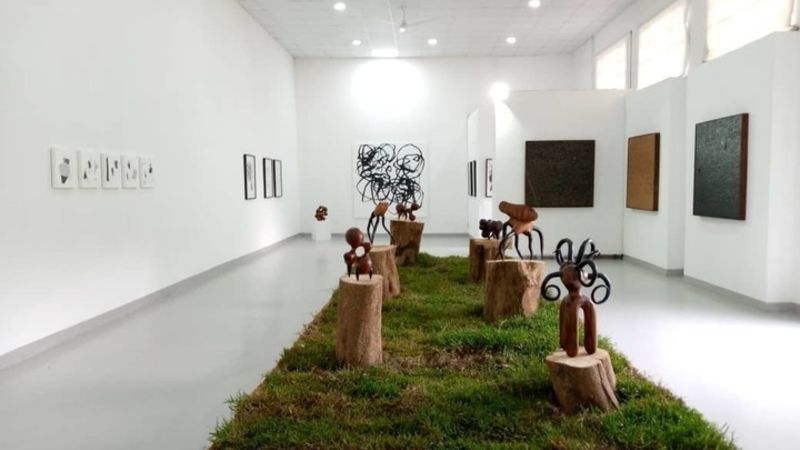U.S. Official Returns Historical Collections To Liberia National Museum


Preserving historical documents, particularly the ones that trace the history of a country’s existence and culture is very important. However, Liberia has a poor record when it comes to keeping such documents. Further compounding their woes was a 14-year war that left the Liberia National Museum in ruins. It was not until 2017 that renovation works were completed at the National Museum.
On June 28, 2019, the U.S Assistant Secretary for Education and Cultural Affairs, Marie Royce, returned several literary and anthropological collections to the Liberia National Museum in Monrovia. However, this was in line with the philosophy of preserving historical documents and records. The documents Royce returned were either written by Liberians or Liberian-Americans. Consequently, Royce could not hide her admiration for the new face of the museum. She said,
“National museums are places of memories and inspirations; for they preserve and protect precious works of art and culture, as well as everyday objects that record who we are and where we came from. Like the Smithsonian Museums in Washington, D.C., Liberia National Museum has many important stories to tell.”
Some of the collections at the Liberia National Museum
Before the presentation, Royce had a brief tour of the Liberia National Museum in the company of Eugene Nagbe (Information Minister) and Albert Saye Markeh (Director of the National Museum). There are now lots of modern paintings on display at the museum. However, this was contrary to was obtainable before 2017. Among the items on display include traditional music instruments, country clothes, national currencies, President George Weah’s jersey #14, cultural masks, photos of various events, and past and present newspapers.

In addition, Royce presented archival copies of original documents on which the diplomatic relations between the United States and Liberia was found. This includes Liberia’s Instrument of Ratification and the Treaty of Commerce and Navigation between the United States and Liberia (signed in 1862). Among the collections presented to the Liberia National Museum are;
- “Liberia Development Conference Anthropology” by USAID Mission Director, Anthony S. Chan
- “A Doctor’s Ebola Story Inferno” by Stephen Hatch
- “Christianity, Islam and the Negro Race” by Edward Wilmot Blyden
- “She Would be King” by Wayetu Moore
- “Another America — The story of Liberia And The Former Slaves, Who Ruled It” by James Ciment
- “Nuggets of the African Novel” by K. Moses Nagbe
- “And Still Peace Did Not Come:” A memoir of Reconciliation by Agnes Fallah Kamara-Umunna and Emily Holland
- “West Africa Before European and other Addresses Delivered in England” by Edward Wilmot Blyden
- “The Mask of Anarchy” by Stephen Ellis
- “Ambition and Atrocity in Africa’s Lone Star State—Charles Taylor and Liberia” by Colin M. Waugh
U.S. support for history and culture preservation
Royce is optimistic that the United States will continue to support Liberia National Museum and other countries in preserving their culture and history. However, she said this collaboration will involve the Ambassador’s Fund for Cultural Preservation (AFCP). Explaining the aim of the AFCP Royce said,
“Through the Ambassador’s Fund, the U.S. helps to preserve cultural heritage around the world and shows our respect for other culture. [However], the projects cover a wide range of heritage, from the conservation of endangered manuscripts in Mali to the documentation of traditional music in Senegal, and ancient rock arts in Nigeria. We would be very pleased to see an Ambassador’s Fund for Cultural Preservation application from Liberia later this year; we will be providing more information to the Ministry about this program through the Embassy.”
However, Liberia’s prolific history writer, Dr. Joseph Saye Guannu believes the government often fail to support writers of history. According to him, the government always want to have a positive representation even when there is nothing positive about them. The gesture by the United States is a virtue other European countries should emulate.







Responses